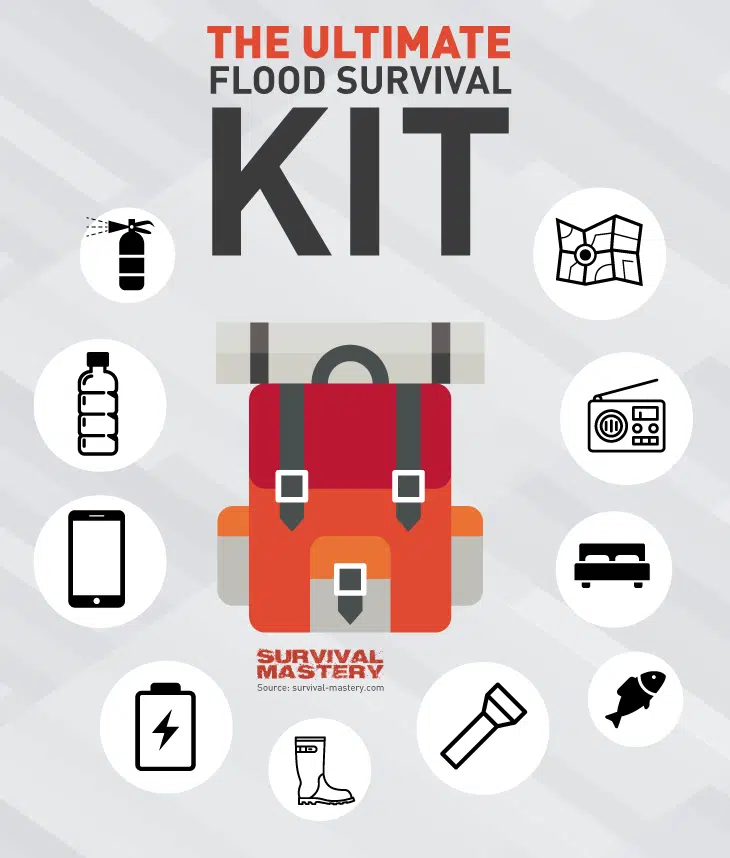Responding To A Flash Flood Emergency: A Survival Guide

Table of Contents
Before the Flash Flood: Preparedness is Key
Proactive measures significantly increase your chances of surviving a flash flood. Preparation is the first and most critical step in handling a flash flood emergency effectively. This involves planning, gathering supplies, and understanding your surroundings.
Develop a Family Communication Plan
A well-defined communication plan is vital during a flash flood emergency, especially if family members are separated.
- Multiple Communication Methods: Utilize cell phones, landlines, text messages, and even a pre-arranged meeting place to ensure contact.
- Designated Out-of-State Contact: Designate a person outside the affected area as a central point of contact for relaying information between family members.
- Regular Practice: Regularly practice your communication plan to ensure everyone understands their roles and responsibilities. Drills help familiarize everyone with the plan's procedures.
Create a Go-Bag
A well-stocked emergency go-bag is essential for any flash flood emergency. It should contain vital supplies for immediate needs.
- Essential Supplies: Include non-perishable food (energy bars, canned goods), ample water (at least one gallon per person per day), a comprehensive first-aid kit, necessary medications, flashlights with extra batteries, and a whistle for signaling.
- Important Documents: Keep essential documents like IDs, insurance information, and medical records in a waterproof container within your go-bag.
- Location-Specific Items: Include a map of your area, emergency contact information, and a list of any allergies or special medical needs.
Identify Evacuation Routes and Safe Zones
Knowing your surroundings and potential escape routes is crucial during a flash flood.
- High-Risk Areas: Identify areas in your community prone to flooding. This knowledge allows for proactive evacuation planning.
- Evacuation Routes & Shelters: Familiarize yourself with designated evacuation routes and the locations of nearby shelters. Understand the quickest and safest paths to higher ground.
- Local Warning Systems: Know how your local authorities issue warnings, whether through sirens, weather alerts on your phone, or local news broadcasts.
During the Flash Flood: Immediate Actions to Take
When a flash flood warning is issued, immediate action is crucial. Swift responses can dramatically increase your safety.
Evacuate Immediately
If authorities issue an evacuation order, evacuate immediately. Do not hesitate.
- Avoid Driving: Never attempt to drive through floodwaters; even shallow water can sweep a vehicle away. The force of moving water is deceptively strong.
- Seek Higher Ground: If evacuation isn't immediately possible, move to the highest ground available.
- Sturdy Building Refuge: Seek refuge in a sturdy, elevated building, away from flood-prone areas.
Stay Informed
Continuous monitoring of weather reports and emergency alerts is vital during and after a flash flood.
- Weather Updates: Stay updated on weather forecasts and flash flood warnings through radio, television, and official weather service apps.
- Emergency Broadcasts: Listen attentively to local news and radio stations for instructions and updates from emergency officials.
- Avoid Hazards: Avoid downed power lines, debris, and other potential hazards. Floodwaters can conceal dangers.
Protect Yourself and Your Property
Protecting yourself and your belongings is a priority during a flash flood emergency.
- Secure Loose Objects: Secure any loose objects outside your home that could be swept away by floodwaters.
- Move Valuables: Move valuable items to higher levels of your home to minimize potential damage.
- Utility Shut-Off (If Safe): If it is safe to do so, turn off utilities (gas, electricity) to prevent further hazards.
After the Flash Flood: Recovery and Safety
Post-flash flood, safety and recovery remain paramount. Proceed cautiously and prioritize safety.
Assessing the Damage
Once the immediate danger has passed, carefully assess the damage to your property.
- Documentation: Take photos and videos of any damage to your property for insurance claims. Detailed documentation is vital.
- Building Inspection: Do not enter flood-damaged buildings until they have been inspected for structural safety by qualified professionals.
- Hazard Check: Check for gas leaks, structural damage, electrical hazards, and other potential dangers.
Cleaning and Sanitation
Floodwater is highly contaminated, requiring careful cleaning and sanitation procedures.
- Protective Gear: Wear protective gear (gloves, boots, masks) when cleaning up after a flash flood.
- Disinfection: Disinfect all surfaces and belongings that came into contact with floodwater using appropriate cleaning agents.
- Waste Disposal: Dispose of contaminated materials properly according to local guidelines.
Seeking Assistance
Seek assistance from local authorities and community resources during the recovery process.
- Damage Reporting: Report any damage to your property and any injuries to emergency services.
- Disaster Relief: Apply for disaster relief assistance programs if available through federal, state, or local agencies.
- Community Support: Seek help from friends, family, community organizations, and charities offering disaster relief.
Conclusion
Surviving a flash flood emergency requires preparedness, swift action, and a well-thought-out plan. By following the steps outlined in this guide, you can significantly increase your chances of staying safe during a flash flood. Remember, preparation is key. Develop your family's flash flood emergency plan today and ensure you're ready to respond effectively to a flash flood emergency should it occur. Don't delay – prepare for a flash flood emergency now!

Featured Posts
-
 Affordable Housing Solutions Gregor Robertsons Approach To A Stable Market
May 25, 2025
Affordable Housing Solutions Gregor Robertsons Approach To A Stable Market
May 25, 2025 -
 Marktdraai Europese Aandelen Tijdelijk Of Blijvend Verschil Met Wall Street
May 25, 2025
Marktdraai Europese Aandelen Tijdelijk Of Blijvend Verschil Met Wall Street
May 25, 2025 -
 Mia Farrow Demands Trumps Arrest For Deporting Venezuelan Gang Members
May 25, 2025
Mia Farrow Demands Trumps Arrest For Deporting Venezuelan Gang Members
May 25, 2025 -
 Bakhreinska Gran Pri Mertsedes So Kazni Za Tekhnichki Prekrshotsi
May 25, 2025
Bakhreinska Gran Pri Mertsedes So Kazni Za Tekhnichki Prekrshotsi
May 25, 2025 -
 Zoryaniy Stil Naomi Kempbell U Biliy Tunitsi Na Shou U Londoni
May 25, 2025
Zoryaniy Stil Naomi Kempbell U Biliy Tunitsi Na Shou U Londoni
May 25, 2025
